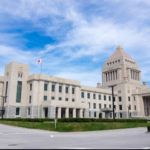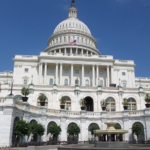Following Colombia’s agreement to take deported migrants without limits, the White House declared that the United States will not impose 25% tariffs on Colombian exports. Resolving a high-profile diplomatic dispute that began when Colombia first refused to permit US military deportation flights to land in the nation, the deal represents a key milestone in US-Colombia ties.
What Sparked Trump’s Threat of Retaliation?
Following the denial of entrance into Colombia for two US military deportation flights, former President Donald Trump issued the order for the levies. Trump responded to the decision by promising to take “urgent and decisive retaliatory measures.” Significant import duties on Colombian goods, visa restrictions on Colombian citizens, and increased border checks were some of these measures.
Trump said, “We will not let foreign governments dictate how we handle deportations,” in a post on his social media network, Truth Social. America is the top priority. This firm position marked the beginning of a heated period in US-Colombia relations.
How Did Colombia Respond to US Deportation Policies?
At first, Colombian President Gustavo Petro blasted the United States’ deportation strategy, saying his nation would only take deportees who were flown on private aircraft and treated with respect. “We will not treat them like criminals,” Petro said in a statement.
In a scathing post on X (previously Twitter), he reaffirmed his stance, stating, “Your blockade does not scare me, because Colombia, besides being the country of beauty, is the heart of the world.” As part of his response, Petro also declared retaliatory taxes on American goods. Relations between the US and Colombia were momentarily strained by this intensifying rhetoric.
How Was the Conflict Resolved?
After tensions escalated for hours, both parties sought a solution. Colombia has agreed to receive migrants flown by US military planes “without limitation or delay,” according to a statement issued by the White House. Colombia responded by underscoring Washington’s pledge to treat those who have been repatriated with respect.
The US-Colombia relationship underwent a sea change when a Colombian government official stated, “The two nations are committed to fostering respect in the deportation process.”
Will Tariffs and Sanctions Be Enforced?
The White House made it clear that even with the deal, the proposed tariffs and sanctions are still ready to go into effect in the event that Colombia doesn’t follow the terms. “All of President Trump’s demands have been agreed upon,” a White House official said. If the agreement is broken in any way, the tariffs will be applied.
Furthermore, until the first set of deportees is successfully returned, the United States will continue to enforce visa restrictions and conduct more thorough inspections of Colombian individuals entering the country.
What Does This Agreement Mean for US-Colombia Relations?
The resolution emphasizes how precarious US-Colombia ties are when it comes to immigration matters. Although the agreement was hailed as a positive step by both parties, the ongoing threat of tariffs highlights the tensions that still exist.
As President Petro affirmed, “Colombia will continue to defend its sovereignty while ensuring its citizens are treated with respect.” Meanwhile, Trump’s administration reaffirmed its commitment to tough measures, warning, “America’s interests will not be compromised.”
This diplomatic episode serves as a reminder of the complexity in international cooperation on migration and commerce.




